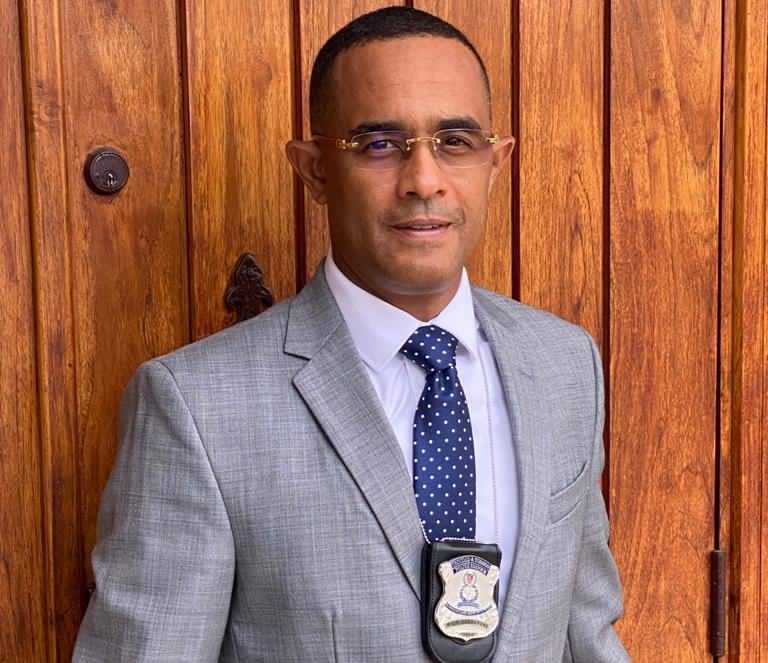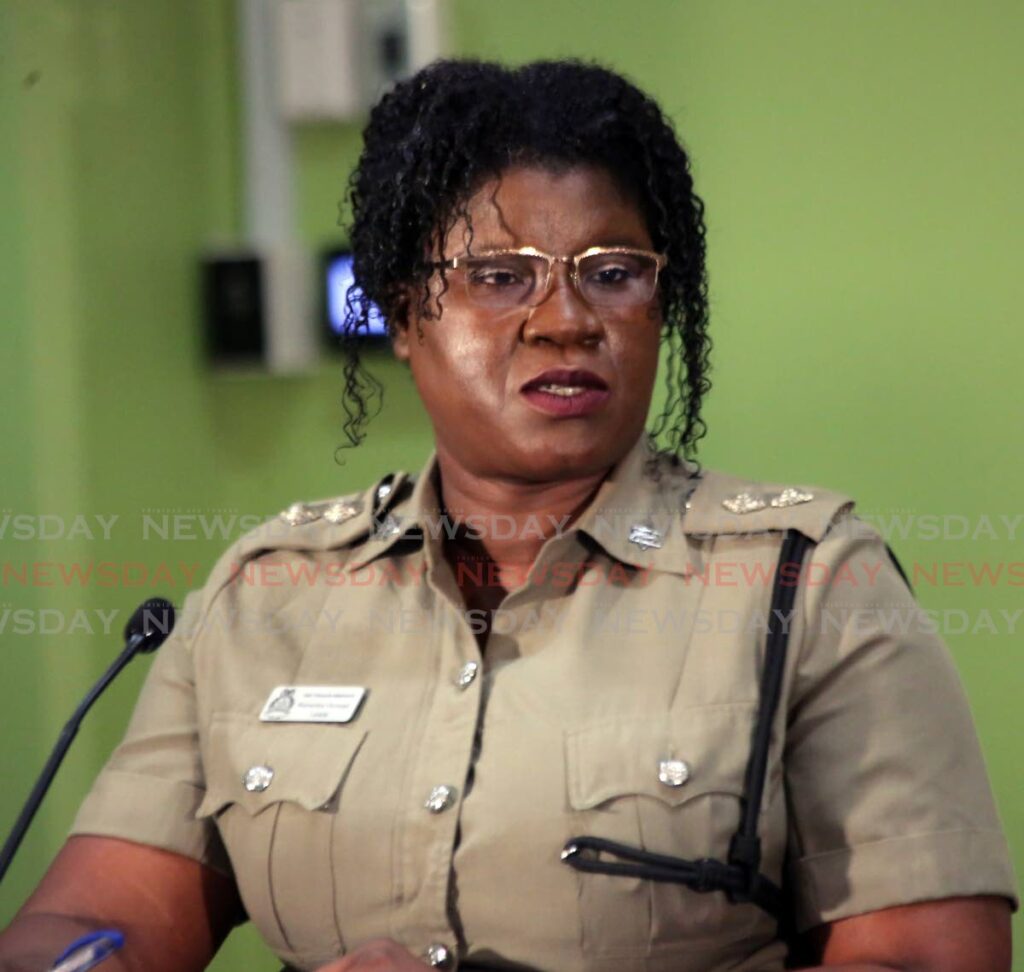DCP admits to giving flawed advice in ASP promotion exercise

A deputy commissioner of police has admitted to giving flawed advice to the consultancy firm involved in the promotion assessment process for the rank of assistant superintendent of police (ASP) to move from the first stage to the second.
The admission was made by DCP administration and operational support Natasha George on October 18, in response to a lawsuit filed by Insp Mark Hernandez, former head of the now-defunct Special Operations Response Team (SORT).
Hernandez is challenging the promotion process for ASPs. He contends the procedure used is contrary to the Police Service Act and Police Service Regulations.
Central to Hernandez’s claim is that the three-part process for assessing officers for promotion to the rank of ASP is set out in a written policy and in the police service regulations, but they are not being followed.
One of his contentions is that the first component of the process – an appraisal system – gave everyone the same universal score of “outstanding.” He has also complained that inspectors who did not achieve the 50 per cent pass mark were permitted to advance to the final stage.
The former SORT boss, who is on suspension, also complained about the composition of the panels' interviewers in the final stage, saying the panels put together by Odyssey are not in keeping with the police service regulations.
A similar complaint has been made by his colleague Insp Veneta Weaver-Ali, of the police’s White Collar Crime Unit.
In her affidavit, in which she admitted to giving the flawed advice, George said at a briefing with candidates, the president of the TTPS Social and Welfare Association, Acting ASP Gideon Dickson, raised a question about the 50 per cent pass mark stipulated by Odyssey ConsultInc, pointing to a judgment of the High Court on the illegality of fixing a pass mark when the regulations did not specify it.
“I subsequently informed Odyssey to eliminate the pass mark requirement and to permit all participants to advance from stage one to stage two of the assessment process.
“...The commissioner and I have since been advised that regulation 19(5)(a) of the regulations require that ‘only the top-performing candidates’ as determined by Odyssey are to proceed to stage two of the assessment process.
“I, therefore, acted on a mistaken basis in informing Odyssey to permit all candidates from stage one to advance to stage two of the process.
"It remains a matter for Odyssey, in its independent discretion, to determine, pursuant to regulation 19(5)(a) who are the ‘top performing candidates’ from the stage one written qualifying examination to proceed to the stage two – suitability assessment process, and to take remedial steps to correct this process.”
However, George said candidates were told at a briefing that no cut-off mark had been imposed and neither Hernandez nor any other officer objected to all officers progressing to the second stage of the process.

She also said neither the commissioner nor her office was involved in selecting or approving the members of the various panels appointed by Odyssey nor was there a decision or settled practice to award a universal “outstanding grade” to all officers eligible for promotion to the rank of ASP, or any rank in the police service.
George said the police service had adopted a policy encapsulated in the manual for the Performance Management Appraisal System (PMAS) of the police service. She said it was an officer’s immediate supervisor who prepared his PMAS reports and not the commissioner, and while it was common for officers to receive an “outstanding grade,” there were those who received grades other than “outstanding.”
On October 7, Justice Frank Seepersad who is presiding over the two challenges, extended an injunction to stop the commissioner from continuing the promotion process for ASPs. The matter will come up for another hearing on October 30.
George said the injunction halted the stage two assessment process which started on October 3 and the legal advice received on the “filtering of candidates” between the first and second stages and Seepersad’s ruling “will determine how the promotional assessment process moves forward.”
George also admitted concerns were raised at briefings on the composition of the assessment panels but said other than what was presented by Odyssey at the sessions, she could not provide the basis for the selection or composition.
She also admitted that after Hernandez filed his lawsuit, she asked Odyssey for the score sheets of candidates at stages one and two and received them. She said she was willing to provide Hernandez with his as she has provided other candidates with theirs.
George also said no officer had a right to be promoted to any rank.
In recent times, the promotion process has been challenged by officers of several ranks.
In September, National Security Minister Fitzgerald Hinds said a computer system glitch wrongfully led to the promotion of constables to corporals. He told the Senate reversing promotions involved complex legal issues.
In an internal memo dated December 6, 2023, Commissioner Harewood-Christopher apologised to officers, describing the situation as an “anomaly” in the promotions process.
Legal proceedings involving the promotion of 29 officers because of this glitch are ongoing, while 34 officers who were not promoted were eventually elevated and paid their entitlements and benefits.

Comments
"DCP admits to giving flawed advice in ASP promotion exercise"